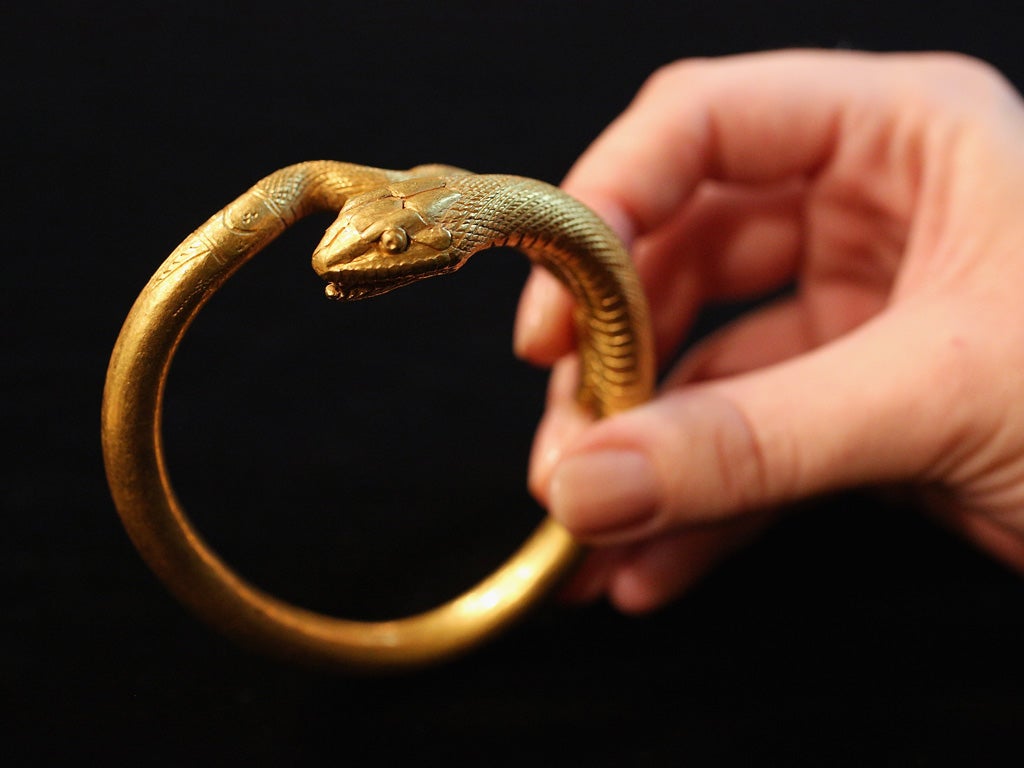A trip to Pompeii: Let’s have Helen the director
We're still in thrall to a 2,000-year-old town

Your support helps us to tell the story
From reproductive rights to climate change to Big Tech, The Independent is on the ground when the story is developing. Whether it's investigating the financials of Elon Musk's pro-Trump PAC or producing our latest documentary, 'The A Word', which shines a light on the American women fighting for reproductive rights, we know how important it is to parse out the facts from the messaging.
At such a critical moment in US history, we need reporters on the ground. Your donation allows us to keep sending journalists to speak to both sides of the story.
The Independent is trusted by Americans across the entire political spectrum. And unlike many other quality news outlets, we choose not to lock Americans out of our reporting and analysis with paywalls. We believe quality journalism should be available to everyone, paid for by those who can afford it.
Your support makes all the difference.You can keep your David Bowie exhibition.
This week sees the opening of “Life and Death in Pompeii and Herculaneum” at the British Museum and I am practically squeaking with excitement.
It’s the first major exhibition of artefacts from these towns to be staged in London in my lifetime, which is astonishing when you think how obsessed we are with these small Italian towns, frozen in time for almost two millennia.
The cultural impact of Pompeii is enormous: everyone from Frankie Howerd to Robert Harris has had a go at it. The eruption of Vesuvius was compelling even as it was happening. As toxic smoke filled the sky around the Bay of Naples, Pliny the Elder sailed towards Herculaneum to try and rescue some friends. He didn’t survive the journey. His nephew, Pliny the Younger (who stayed at home reading Livy, which just goes to prove that bookworms die of old age), described his uninjured body to a friend as looking “more like a man asleep than dead”.
Our fascination with both towns is unsated. It’s surely because they show us history on such a human scale. Pompeii isn’t filled with official statuary and statement buildings but homes and workplaces of ordinary people whose lives remind us of our own. The shabbiness only adds to the pathos.
Pompeii had fallen on hard times. Buildings damaged in the earthquakes which preceded the eruption had often gone unrepaired. It was a town whose glory days were behind it decades before it made history. And the Pompeiians themselves had become a rowdy bunch.
In 59 AD, 20 years before Vesuvius obliterated them, the Pompeiians rioted after a day at the games. So many people from a rival town were killed that Pompeii was banned from holding gladiatorial games for a decade.
The portrait of a baker, Terentius Nero, and his wife is one of the star pieces of the new exhibition. They’re holding writing materials, so you – the viewer – understand that they are literate people, trying to impress you with their highbrow hobbies. It’s like catching a glimpse of a graduation photo; it’s a much more personal memento than, say, an official statue of an emperor.
The casts of a family hiding from the wrath of Vesuvius beneath a staircase can’t help but make us think of our own loved ones: it’s a disaster movie as much as it is a moment in history, and we respond to it accordingly. Rome may be the Eternal City, but it’s Pompeii that we can’t let go.
Mirren on Mendes
At the Empire film awards on Sunday Helen Mirren was accused of calling Sam Mendes sexist because she mentioned that the director cited an all-male list of inspirations from Truffaut to Bergman. Actually, she seemed to be issuing a plea that in five or 10 years’ time, there would be a more balanced gender mix in the film-making world, which is hardly the same as burning your bra and hurling yourself beneath the hooves of a passing horse.
Mirren is simply stating a fact: female film directors are in short supply. Is it too much to hope that she might soon get behind the camera herself?
Join our commenting forum
Join thought-provoking conversations, follow other Independent readers and see their replies
Comments